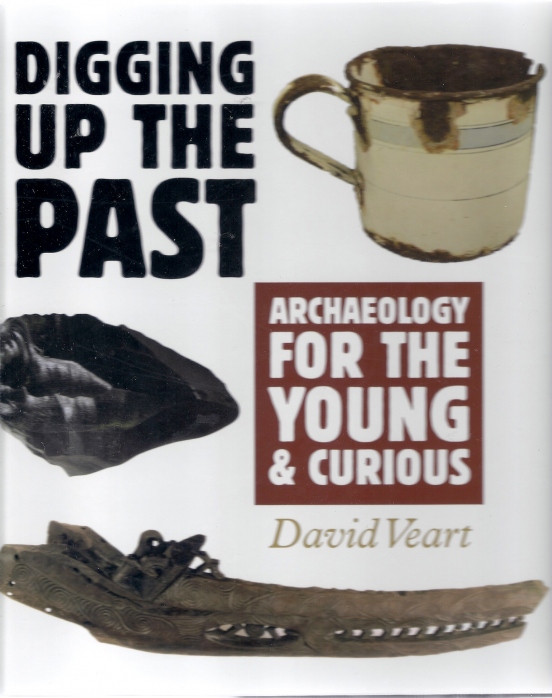Difference between revisions of "Digging Up the Past"
(→Digging Up the Past - Archaeology for the Young and Curious) |
|||
| Line 12: | Line 12: | ||
Looking for ancient DNA, researching your own rubbish (WARNING: stinky work ahead), doing aerial archaeology with Google Earth (better than leaning out of a biplane) – this book will have readers of all ages thinking like archaeologists as it excavates the stories of the past. | Looking for ancient DNA, researching your own rubbish (WARNING: stinky work ahead), doing aerial archaeology with Google Earth (better than leaning out of a biplane) – this book will have readers of all ages thinking like archaeologists as it excavates the stories of the past. | ||
| + | |||
| + | ---- | ||
| + | The book was reviewed by Nigel Prickett in Archaeology in New Zealand 54(4) 2011. | ||
---- | ---- | ||
[[Category:Books]][[Category:2011_Books]] | [[Category:Books]][[Category:2011_Books]] | ||
Revision as of 15:02, 3 December 2011
Digging Up the Past - Archaeology for the Young and Curious
David Veart Auckland University Press 2011 ISBN 978 1 86940 465 9
The Blurb
What do moa eggs, seeds chewed by rats and 600-year-old footprints have in common? Lost planes, dog turds and frozen sleeping bags? Archaeologists in Aotearoa New Zealand deal with artefacts like these every day to work out how the people before us lived.
In this book David Veart walks alongside the archaeologists as they dig up the past on top of volcanoes and beneath our city streets, in Māori pā and explorers’ huts. He shows us the things they find – obsidian adzes, enamel cups, the carved prow of a waka – and tells us the remarkable stories they have uncovered of Polynesian voyagers and Pākehā sealers, Māori gardeners and Chinese storekeepers.
Looking for ancient DNA, researching your own rubbish (WARNING: stinky work ahead), doing aerial archaeology with Google Earth (better than leaning out of a biplane) – this book will have readers of all ages thinking like archaeologists as it excavates the stories of the past.
The book was reviewed by Nigel Prickett in Archaeology in New Zealand 54(4) 2011.
